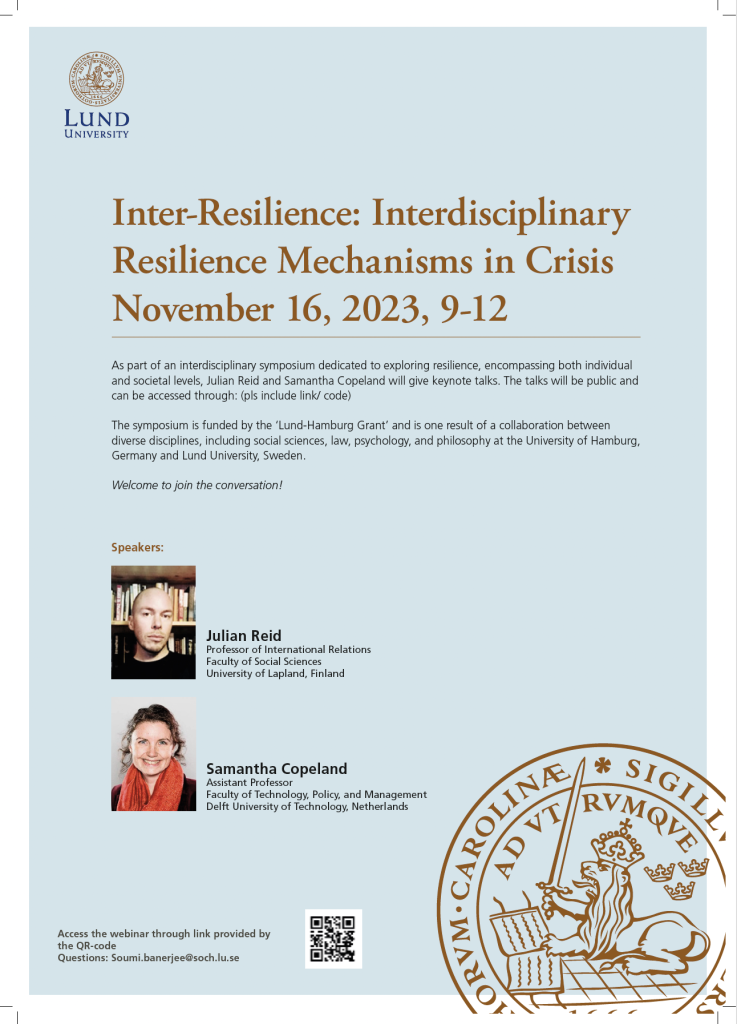Invitation to attend a workshop organized by Crisis Inequalities and Social Resilience (CISR), Funded by the Faculty of Social Sciences, Lund University, under the Strong Research Area Initiative
We are excited to announce a workshop on Crisis Inequalities and Social Resilience (CISR), designed to provide participants with a comprehensive understanding of the basics and key concepts in this field. We believe this workshop will be instrumental in fostering collaboration, sharing knowledge, and enhancing skills in crisis and social resilience research.
This workshop, therefore, invites participants to explore the analytical potential of the two complex and multifaceted concepts, crisis and (social) resilience. The participants are encouraged to consider the following questions: “what does it mean to live in times of crisis?”, “for whom is a crisis a crisis and why?”, and “what does it mean to be resilient in the face of diverse crises across different sociocultural contexts?” In the workshop, we specifically focus on various forms of resilience to capture how people deal with precarity and hardship in specific contexts framed by crisis to mitigate, cope with, and maybe even identify new potentialities.
Format: The workshop will consist of four sessions, consisting of 4-5 presenters, including a keynote presentation, and interactive discussions.
Purpose: The primary goal of this workshop is to critically study ‘crisis’ and ‘resilience’ conceptually, empirically, and methodologically and how such notions are embedded in socioeconomic and political realities. It aims to enhance participants’ understanding of key concepts, provide hands-on experience, and foster networking and interdisciplinary collaboration.
Sessions with Keynote Speakers:
- Conceptualizing Crisis Inequalities and Social Resilience
- Social Resilience and Migration
- Gender and Intersectionality
- Digital Culture and Meme “Track”
Date and Time: May 28-29, 2024.
Workshop Registration: Please ensure you complete your registration before May 1st, 2024, using the following link: https://forms.gle/vgHFi2fABBghqPtR8
Venue: May 28 School of Social Work, Socialhögskolan, Sh108; May 29 Eden, Room 236
Questions: Soumi.banerjee@soch.lu.se


Comments